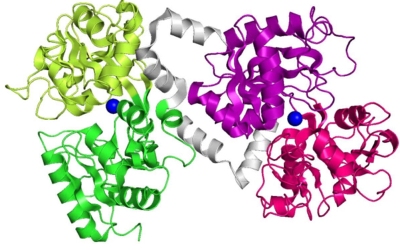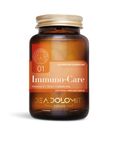Zinc

Zinc (Zn) is a mineral present in the body in small quantities but it is an essential element for over two hundred enzymes and many proteins. Zinc accumulates predominantly within muscle, bone, skin and liver cells and in hair, but is also present in brain tissue and is required for proper function of hormones, including insulin, growth hormone and the sex hormones.
Zinc contributes to normal macronutrient metabolism. It contributes to the maintenance of normal testosterone levels in the blood and to normal fertility and reproduction. Zinc together with Selenium help protect cells from oxidative stress and keep hair and nails healthy.
C vitamin
 Vitamin C, also known as ascorbic acid, is a water-soluble vitamin, i.e. it dissolves in water, with antioxidant properties: it helps keep cells healthy by protecting them from the effects of free radicals produced during normal cellular activity. Since vitamin C is not produced by the body and cannot be stored, the right daily dose must be taken through a healthy and balanced diet. Vitamin C has a documented antioxidant activity by virtue of which it reduces lipid peroxidation, oxidative damage to DNA and that to proteins. It is useful in the prevention of cardiovascular diseases and has a chelating activity against heavy metals, becoming useful in detoxifying therapies. It can positively influence iron absorption. Vitamin C can play a protective action on eyesight and prevent cataracts. Vitamin C also contributes to the synthesis of collagen and the reduction of tiredness and fatigue and supports the normal functioning of the nervous system and psyche.
Vitamin C, also known as ascorbic acid, is a water-soluble vitamin, i.e. it dissolves in water, with antioxidant properties: it helps keep cells healthy by protecting them from the effects of free radicals produced during normal cellular activity. Since vitamin C is not produced by the body and cannot be stored, the right daily dose must be taken through a healthy and balanced diet. Vitamin C has a documented antioxidant activity by virtue of which it reduces lipid peroxidation, oxidative damage to DNA and that to proteins. It is useful in the prevention of cardiovascular diseases and has a chelating activity against heavy metals, becoming useful in detoxifying therapies. It can positively influence iron absorption. Vitamin C can play a protective action on eyesight and prevent cataracts. Vitamin C also contributes to the synthesis of collagen and the reduction of tiredness and fatigue and supports the normal functioning of the nervous system and psyche.
Lactoferrin
 Lactoferrin (or lactoferrin) is a protein belonging to the category of transferrins, protein molecules with the ability to bind and transport iron. Lactoferrin inhibits the aggregative capacity of bacteria, preventing their proliferation.
Lactoferrin (or lactoferrin) is a protein belonging to the category of transferrins, protein molecules with the ability to bind and transport iron. Lactoferrin inhibits the aggregative capacity of bacteria, preventing their proliferation.








